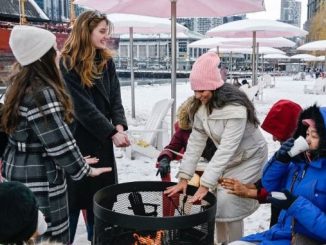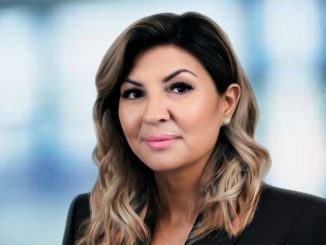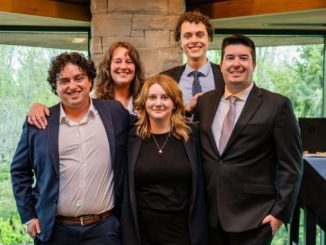Soroptimist International Toronto is part of Soroptimist International, an organization which advocates for women and supports them in achieving their goals. They stand up for women’s rights and are dedicated to working on projects that improve the lives of women and girls, both locally and globally. Some of their projects include the fight against violence towards women and supporting access to education. We spoke with Estatira Shirkhodaee, President of Soroptimist International of Toronto, to learn more about them.
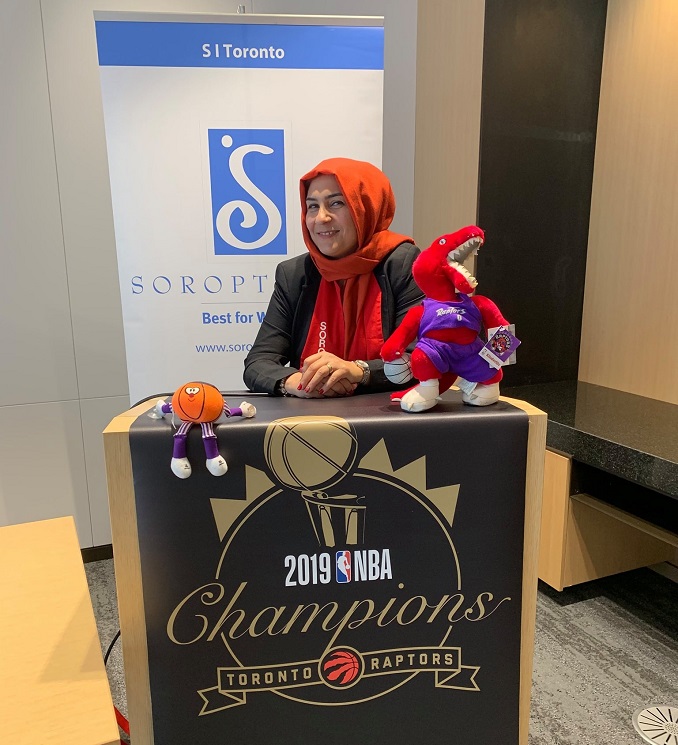
Describe your charity/non-profit in a few sentences.
Soroptimist International of Toronto is part of Soroptimist International, an NGO with consultative status in the UN. Since its charter in 1934, our club has been serving the community and has done unwavering work in standing up for women and girls. It has worked on many projects that benefit women & girls locally and globally. At SI Toronto, we dare to dream of a world where women are socially and economically empowered through education, a world without violence against women, and a world where women live their dreams.
What problem does it aim to solve?
We advocate for women’s issues such as all forms of violence against women, women’s education and women’s empowerment. 5 of the UN Sustainable Development Goals are supported by Our signature dream programs “Live Your Dream Award”, an Education and training award for women who are the primary financial support for the family, and “Dream It Be It”, a program that gives high school girls the tools they need to achieve their education and career goals, empowering them to break cycles of poverty, violence, and abuse. Our “Kisumu Girls’ Education Initiative” in partnership with Soroptimist International of Kisumu supports girls from slums and very low-income families in rural areas of Kisumu, Kenya throughout high school. This helps them avoid early marriages and find better jobs that can lift them and their families out of poverty. Our awareness campaigns shed light on some key and serious issues such as domestic violence, sexual violence, sex trafficking, Missing and Murdered Indigenous Women and Girls, non-state torture, and gender equality.
When did you start/join it?
I joined Soroptimist International of Toronto in Feb 2015. Since then I have served as fundraising director at the club level and public awareness and program director at the regional level.
What made you want to get involved?
I was always interested in getting involved in activities and movements that addressed serious issues women face globally. Having seen women’s rights violations in different parts of the world, I was looking for an opportunity to engage in advocacy in a formal capacity. Joining Soroptimist, an international organization that is present in 120 countries and is the global voice of women seemed the right choice.
What was the situation like when you started?
When I first started, there were some topics such as human trafficking, prostitution and Missing and Murdered Indigenous Women and Girls that we didn’t work on. People were not comfortable talking or hearing about these issues. Regarding our public relations and fundraising, we used to follow a more traditional approach that didn’t quite harness the power of social media. Aging members were a big challenge to the viability of the club. And Toronto club was not diverse. Today, our club is more representative of Toronto with Canadians from different cultural backgrounds.
How has it changed since?
There is no doubt that social media has changed the landscape of the Non-profit industry. So like many others, we use online platforms for different activities from raising funds for different initiatives to launching various campaigns throughout the year. Capitalizing on the power of technology, we now run awareness campaigns on Instagram and Facebook and do fundraising using Canada Helps and Flip Give. With the club’s rejuvenation strategy, we have been able to bring in young members and members from diverse cultural backgrounds. The result has been having new ideas and initiatives brought forward. In our efforts to be more inclusive as well, we celebrate the beauty of each culture and learn more about each other’s cultures.
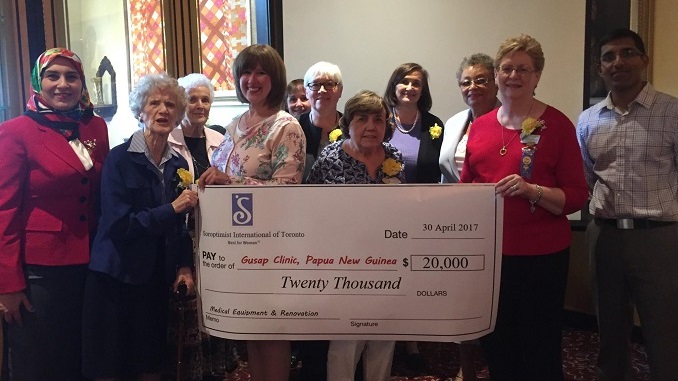
What more needs to be done?
We need more financial and community support. All Soroptimist clubs are self-sufficient, and our revenue comes from our fundraising activities. That is why having donors and sponsors is absolutely vital. We are looking for corporate partnerships whose contributions can enable us to do more Live Your Dream Awards, reach out to more girls through our DIBI and support more girls in Africa, and give financial support to frontline organizations that provide critical services to vulnerable and marginalized women and girls in need.
We also need to have community partners who can support us with our mission. Given the fact that we are a 100% volunteer-based organization and don’t have paid staff, partnerships with other charities and not profits will give us access to new resources. We hope collaboration with others can create more awareness around the work we do, bring us more financial support, and get us to more women and girls who need our support.
How can our readers help?
You can financially support us by making donations to or sponsoring the initiatives we have. There are currently 4 running campaigns: Human trafficking, Live Your Dream, Dream It Be It, and Girls’ Education in Kisumu Kenya for Girls in slums and extremely low-income families.
You can help us spread the word about the work we do and get us connected to more women and girls by sharing our posts and events on social media. You can help us by attending our events and joining our campaigns. And, finally by becoming a Soroptimist and being a global voice for women.
Where can we follow you?
Website | Instagram | Facebook | LinkedIn | YouTube
PAY IT FORWARD: What is an awesome local charity/non-profit that you love?
Rising Angles- s a survivor-led organization for its novelty in providing assistance to women who have been affected by commercial sexual exploitation, whether involuntarily, known as human trafficking, or independently due to lack of choice.

